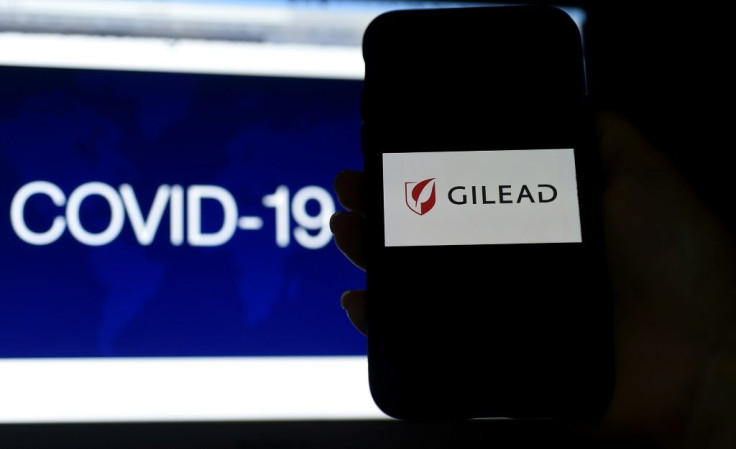Is Gilead Drug Remdesivir Effective Against Coronavirus? Study Accidentally Published Raises Questions

KEY POINTS
- Remdesivir was developed to treat Ebola
- A study involving monkeys indicated it stopped the virus from replicating
- Gilead said the drug shows the most promise when it is administered early in the disease progression
Gilead Science’s antiviral drug remdesivir has proved ineffective against coronavirus in the first randomized clinical trial conducted in China, the Financial Times reported Thursday, but the company and one of the experts involved in the trial said the results are being misinterpreted.
The news followed by days a study that indicated chloroquine was ineffective against coronavirus, and death rates were higher among severely ill patients treated with the anti-malaria drug.
A draft of the study was accidentally published on the World Health Organization’s information sharing platform for research on COVID-19.
The trial involved 237 patients, 158 of them given the drug. Eighteen patients had to be taken off the drug, originally developed to treat Ebola, because of side effects. Of the remainder, the draft said, no improvement was shown and viral load in the bloodstream was unaffected.
The trial, which was conducted late in the outbreak’s cycle, was terminated early due to lack of patients, a major problem when it comes to drawing conclusions, Gilead said. It was one of two Chinese trials for the drug and involved patients with severe cases, a second reason why the results are inconclusive because severe lung problems already likely were present.
WHO said the research was still is undergoing peer review. Gilead said the report included “inappropriate characterizations.”
“Importantly, because this study was terminated early due to low enrolment, it was underpowered to enable statistically meaningful conclusions,” Gilead said. “As such, the study results are inconclusive, though trends in the data suggest a potential benefit for remdesivir, particularly among patients treated early in disease.”
Early indications the drug was useful against COVID-19 were based on anecdotal evidence, rather than rigorous, randomized studies. Positive feedback from a University of Chicago clinical trial sent Gilead’s stock price soaring.
Frederick Hayden, an infectious disease expert at the University of Virginia School of Medicine, was involved in the Chinese study and told Bloomberg the results are being misinterpreted, likely caused by an error in the original transcript, which has since been revised.
The New England Journal of Medicine reported earlier this month data collected on 61 patients indicated 68% showed some clinical improvement from remdesivir but cautioned further, large-scale trials were needed. Animal studies indicated the drug stopped the virus from replicating in monkeys.
The news sent Gilead (GILD) shares tumbling, pushing it down more than 6%.
© Copyright IBTimes 2025. All rights reserved.




















